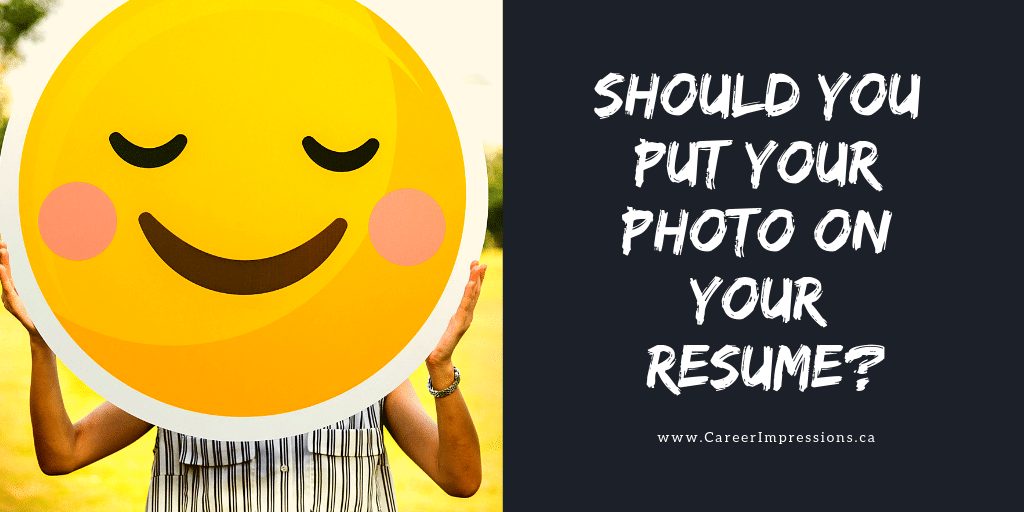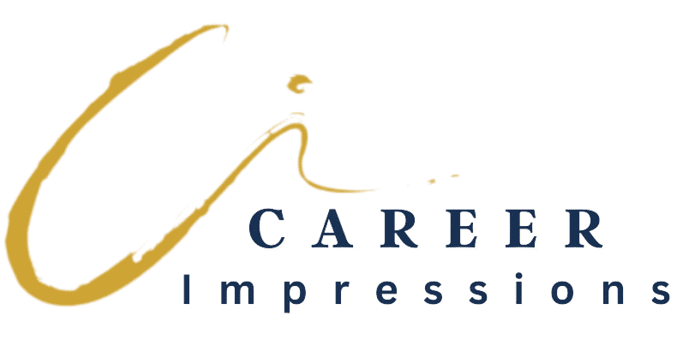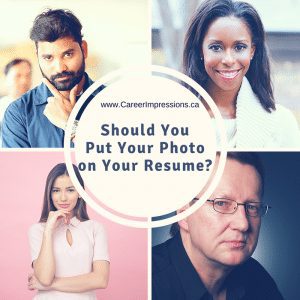
Should You Put Your Photo on Your Resume?
One of my executive resume clients asked me to include their photo on their resume.
My initial reaction? Not a good idea.
My reason? In North America, it is not common practice to include a photo on a resume. It is often discouraged by employers.
A photo can set a job seeker up for discrimination, and many employers do not need or want a picture to accompany this file.
However, what if a job seeker insists on including one? Should it be allowed (it is THEIR resume after all)? Can a photo be more personal and help someone stand out in their job application, or is it a major disadvantage?
I took this question to LinkedIn to ask the experts and here is what some of them had to say:
Bob McIntosh (Career Advisor): “NO! While we advise our clients to sport a photo on their [LinkedIn] profile, it is of no benefit to include one on your resume. This can hurt you in so many ways based on differences in age–young and old–gender, race, facial appearance, etc. Just a bad idea… Yet another consideration is HR and recruiters being wary of lawsuits, as some have expressed regarding LinkedIn profiles. In terms of the LinkedIn profile, who’s to say how many people have been immediately eliminated because of their photo. Photos are just a bad thing all around. Now if we’re talking about certain occupations that rely on one’s looks, that’s a different matter.”
Virginia Franco (Executive Storyteller): “I am with Bob on this one. Pics are great on bios, one-page networking docs and of course LinkedIn, but when it comes to a resume I say no. Corporations don’t like them as they can open the door to discrimination across gender, ethnicity, age, etc. I wouldn’t be surprised, however, to learn that this practice evolves as millennials and then Gen Z rise to positions of leadership. IMO, they are more comfortable with picture-sharing than Gen Xers and Boomers.”
Meaghan Dill (Recruiting Manager): “Too personal! I am more interested in what you can do and what you have done – don’t use precious space on something that can’t tell me what you’re capable of.”
Daisy Wright (Certified Career Management Coach): “Great question Adrienne Tom. I understand why your client thinks it’s okay to include a photo. A client in Switzerland was surprised when I told him we don’t put photos on resumes here in Canada. He had his photo, date of birth, marital status, and nationality in the top third of his original resume… some employers are moving towards ‘blind recruiting’ where they are removing personally identifiable information from resumes (name, gender, age and education), mostly because of unconscious biases. Yes, we all have a touch of it! In any event, if a recruiter or employer really wants to see a photograph, they will search LinkedIn and other social media platforms.”
Tejal Wagadia (Recruiter): “No reason to put your picture on your resume. We all have inherent biases and giving them a reason to disqualify you isn’t going to help. If you want, put your picture on your LinkedIn profile and add your LI URL to your resume. You are expected to put a picture on LI, to show people you are a real person. While on the resume, unless you are a marketing or design professional, no one expects you to put your picture. I always say err on the safe side and don’t put it on your resume. Plus it takes up unnecessary space.”
Mariam Thompson (International HR Professional): “I do not see the issue for including a professional headshot. I have seen it on many European/French, Italian resumes. I used to have my photo on my resume in North America and few resurrects poured out that it was not “OK”. I do not mind if a potential employee sends me a resume with a photo.”
Linda Ferrante (Recruiter): “I had a business owner tell me once that he thought people who put their picture in their resume did so only because they thought of themselves as ‘good looking’, and perhaps they valued their looks over their qualifications and accomplishments. That is much a bias as any I have heard, but any bias is a valid concern.”
Hannah Morgan (Job Search Strategist): “Great responses here! Just wanted to add that a photo on a resume won’t do well in an ATS.”
Kamara Toffolo (Resume Writer): “I agree with most of the sentiments shared so far: this could lead to unwarranted bias and discrimination. It’s also distracting and detracting from what’s most important: the content. I would only add a headshot if it is not only commonplace but expected, for the region. I would also ensure that the headshot is well-integrated with the design of the resume and thoughtfully positioned, and isn’t just hanging out in the header.”
Sarah Johnson (Job Search Strategist /Recruiter): “I would highly discourage putting a picture on a North American resume for the reasons you suggested. It’s important to stand out as a candidate— but in a way that follows business norms. Putting a picture on a resume also creates an opportunity for the recruiter to display unconscious biases.”
Maureen McCann (Career Expert): “I’d worry about the possibility of discrimination. As Sarah pointed out conscious or unconscious bias might be an issue if the photo appears on the resume. I understand the client wanting to use a photo to stand out, but there must be another way to help the client achieve that goal through metrics or demonstrated proof on the resume. The client can save the photo for his/her LinkedIn profile.”
Clint Carrens (Talent Services Executive): “Just echoing what most are saying above – leave the photo off. Even the most well-intentioned recruiter or HR rep can engage in unconscious biases. I go this question often from advertising/PR students I used to advise. I think a good alternative is creating a personal logo. You are still establishing a brand without inviting judgements based on looks, age, etc.”
Wes Pearce (Professional Resume Writer): “It might be appropriate for a *second* one-page resume that a candidate can use for networking or branding purposes; but definitely not for the initial job application. Since it’s assumed candidates will be searched for during the interview process, I think LinkedIn profiles serve a good purpose for putting a face with one’s resume.”
Nancy Segal (Federal Human Resources): “Absolutely no picture unless your client is in TV, acting or something similar. If a government resume has a picture, the application is automatically disqualified. Most companies will do the same thing.”
For the most part, it was agreed – photos don’t belong on a resume used to apply for North American jobs. Too many potential strikes. Instead, add your professional headshot to a more appropriate place, like your LinkedIn profile.
You can read all of the responses here.

